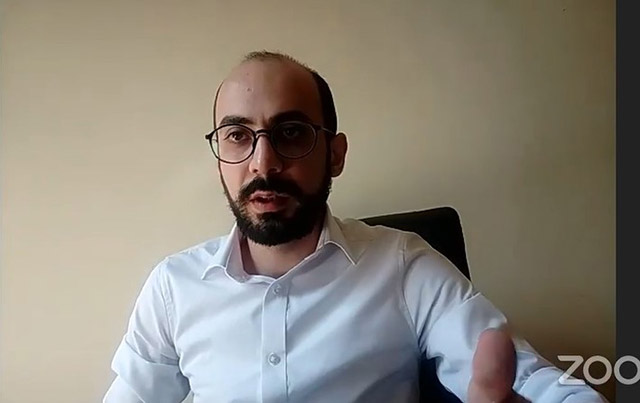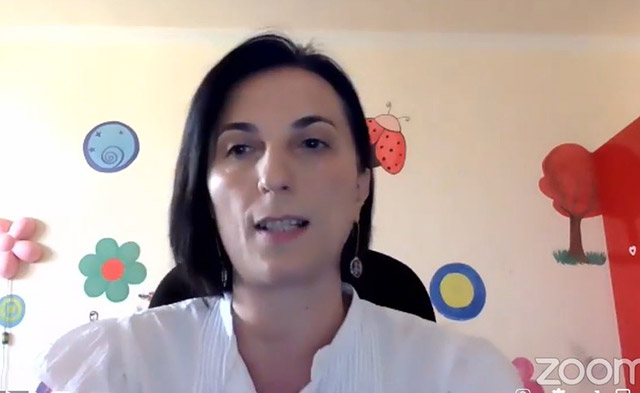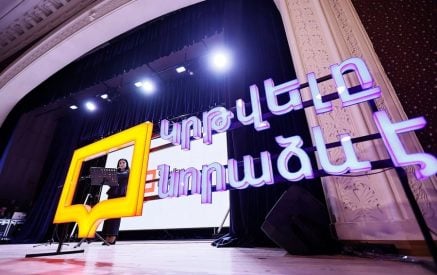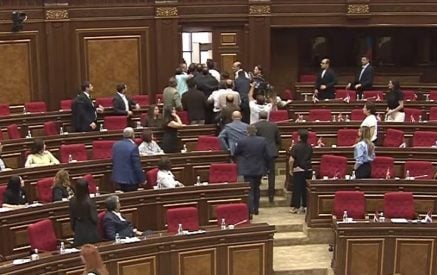The National Assembly’s decision to place restrictions on the work of reporters was passed without discussing it with reporters or getting their opinion. Such a precedent did not occur according to the president of the Freedom of Information Center NGO, Shushan Doydoyan, during a press conference at the Article 3 press club. In her opinion, security may be one of the reasons for restricting the work of journalists in public authorities. “If I am not mistaken, this is the basis the authors of this decision use, stating that they are implementing these restrictions to maintain security.
If they are doing this for security, this will not be understood as a founded approach. There must be a serio need to apply it, there must be some precedent that necessitates certain restrictions. Let’s not forget that we are talking about journalists already accredited in the National Assembly, and when they enter the National Assembly building, they are already undergoing security checks, and the application of those restrictions is no longer necessary and proportionate after that. If we consider the atmosphere in which that decision was made, it leads us to the conclusion that the parliamentary leadership is trying to create a comfortable environment for themselves in order to protect themselves from undesirable questions.”
The authors of this draft are the National Assembly Speaker Alen Simonyan and deputy of the Civil Contract faction Sisak Gabrielyan. The latter worked as a journalist before being elected a deputy. Another former journalist, now a Civil Contract deputy, Artur Hovhannisyan, was one of the speakers at the discussion. In response to the question of how he would react if such a decision was made during the previous government, Artur Hovhannisyan said, maybe negatively.
Read also
“The activity of journalists in the National Assembly is not regulated. When we operate in an environment where there are no rules, it is impossible to ensure the rights of the participants. If there are no rules, there are no responsibilities, and therefore, in case any right is violated, we can not ensure the protection of those rights,” Hovhannisyan said. According to him, guests also come to the National Assembly, and it is mentioned that the draft was not discussed with the interested parties, for example, they could not hold a discussion with the guests arriving in the National Assembly, and then introduce regulations on their conduct. The deputy said that the draft does not restrict the freedom of journalists to receive information, the freedom to disseminate information, or the right to conduct interviews. “If we are referring to the fact that reporters cannot open any deputy’s door as they wish without asking, go inside, and not leave, and you consider that freedom of speech or a way to receive information, then sorry, but we do not agree.”
The deputy assured that the journalists will have areas dedicated to their work. “We have seen many journalists run after the deputies, which, I apologize, is unpleasant. I was in the National Assembly for two days as a journalist, and I refused to go because, I apologize, it was a matter of honor for a journalist to work in the National Assembly when they have to run after the deputies with the operators’ wires under their feet,” said Artur Hovhannisyan. Ms. Doydoyan mentioned that a journalist cannot interview deputies in the parliamentary corridor, and there is no explanation as to why society is deprived of the opportunity to receive pressing information first hand.
Artur Hovhannisyan did not agree with Doydoyan’s assertion that the public’s right to receive information is hindered. He noted that the sittings of the National Assembly are filmed, as are the committee sessions, and, if invited, journalists can conduct interviews in deputies’ offices. “The deputies approach the appropriate locations and talk to the journalists, but we are dealing with a phenomenon proceeding from the structure of the parliament building, which allows people to walk everywhere and enter the same corridor from five different sides, which also causes problems from the security point of view. It is important for me as a politician, and it is in our interests to talk to journalists as much as possible and to share our ideas. Otherwise, when thousands of media outlets do not have power, our political team is targeted, so it is beneficial for us to communicate with journalists who are really journalists and not those sent to disrupt the work of the parliament, provoke incidents, and take information out, as well as to take it out of the country.”
Nelly Babayan























































